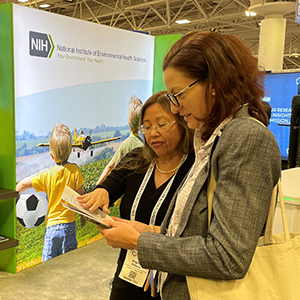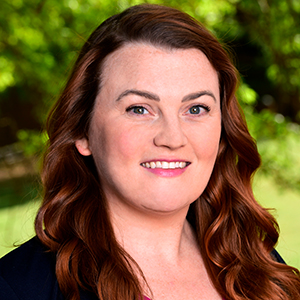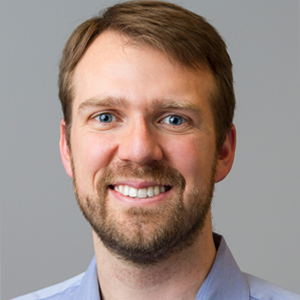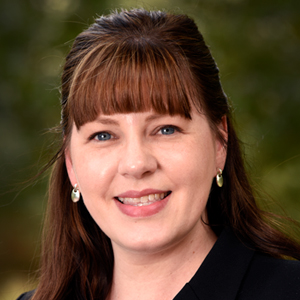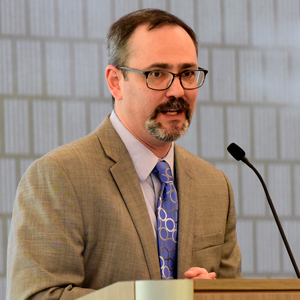Experts from a range of disciplines and geographic areas gathered in San Jose, Costa Rica for the Third International Workshop on Chronic Kidney Diseases of Uncertain/Non-traditional Etiology in Mesoamerica and Other Regions.
NIEHS co-organized the March 20-22 meeting to support progress in the study of certain clusters of chronic kidney disease that cannot be explained by traditional risk factors, such as hypertension or diabetes. These cases are growing in number in El Salvador, Nicaragua, Guatemala, Costa Rica, Sri Lanka, India, and other specific geographic regions.
“This important workshop addresses a critical public health issue,” said Linda Birnbaum, Ph.D., director of the NIEHS and the National Toxicology Program (NTP). “Chronic kidney diseases of nontraditional etiology now reportedly affect 15-20% of 30-60 year olds in some communities. But prevalence estimates are challenging because many of those affected live in areas without access to strong medical diagnosis or treatment,” Birnbaum explained during opening remarks.
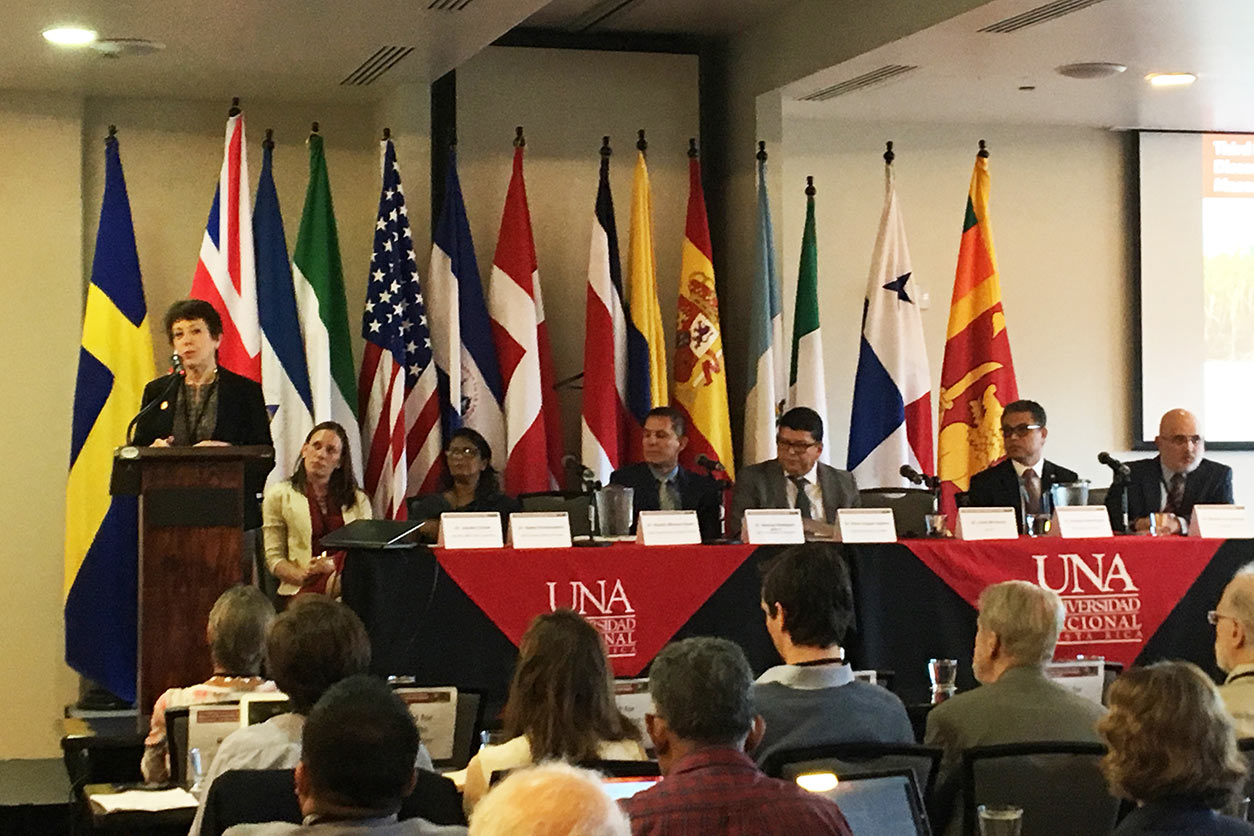 Birnbaum, left, gave opening remarks at the March 20 meeting inauguration, along with other dignitaries representing funders, organizers, and the host institution. (Photo courtesy of Jennifer Crowe)
Birnbaum, left, gave opening remarks at the March 20 meeting inauguration, along with other dignitaries representing funders, organizers, and the host institution. (Photo courtesy of Jennifer Crowe)Many questions, unclear answers
A notable proportion of the disease burden falls on agricultural workers, other manual laborers, and individuals living in poverty. At the conference, there was significant debate about which potential causes are most important.
Possible contributors include exposure to combinations of heat, dehydration, workload, pesticides, herbicides, fertilizers, and toxic heavy metals. Underlying genetic susceptibility, pharmaceuticals, infections, and malnutrition may also contribute.
Despite growing prevalence, research has been complicated by the lack of a universal set of criteria for diagnosing the disease. The March meeting built upon gains in common clinical characterization made in a 2018 workshop organized by the National Institutes of Health.
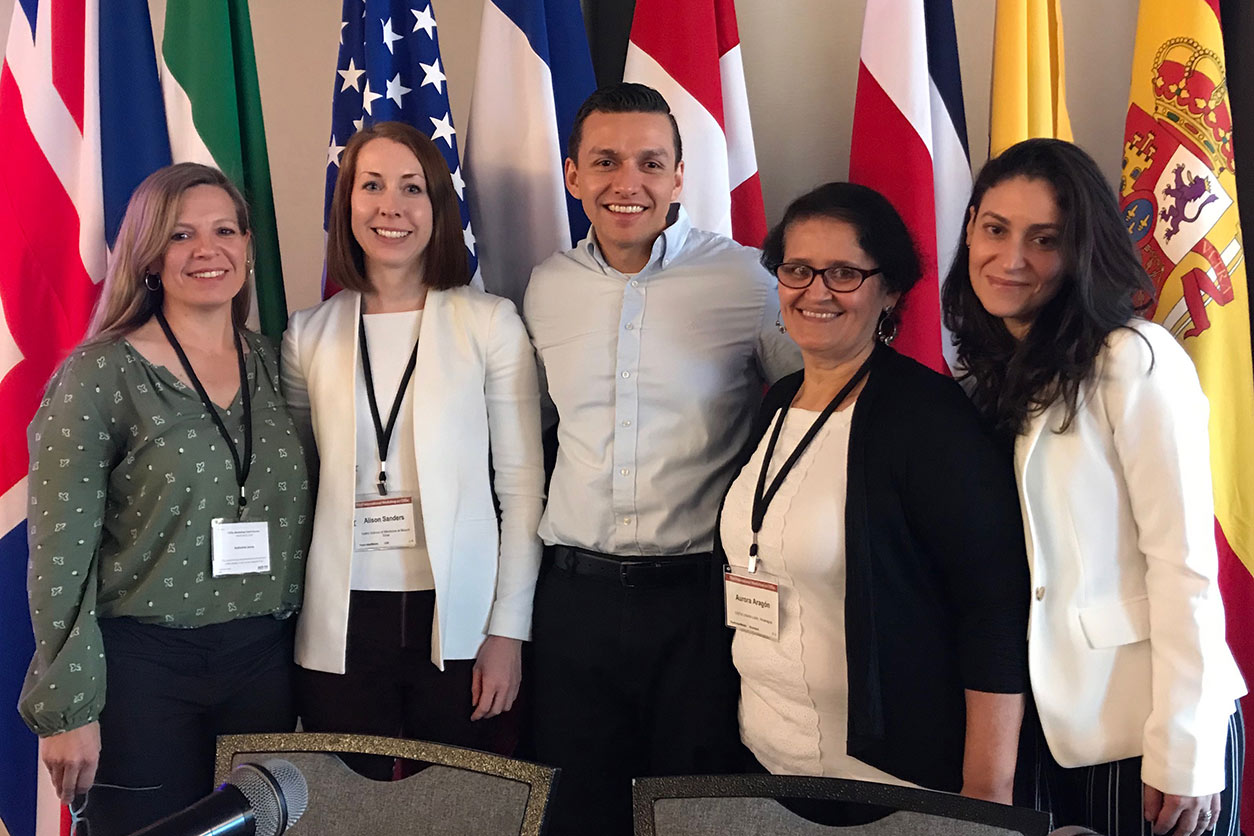 Leading the session on strategies for assessing exposure were, from left, Katherine James, Ph.D., from University of Colorado; Alison Sanders, Ph.D., from Icahn School of Medicine at Mount Sinai; Andres Cardenas, Ph.D., from University of California at Berkeley; Aurora Arragon, Ph.D., from National Autonomous University of Nicaragua; and Lesliam Quiros-Alcala, Ph.D., from University of Maryland. (Photo courtesy of Jose Escamilla)
Leading the session on strategies for assessing exposure were, from left, Katherine James, Ph.D., from University of Colorado; Alison Sanders, Ph.D., from Icahn School of Medicine at Mount Sinai; Andres Cardenas, Ph.D., from University of California at Berkeley; Aurora Arragon, Ph.D., from National Autonomous University of Nicaragua; and Lesliam Quiros-Alcala, Ph.D., from University of Maryland. (Photo courtesy of Jose Escamilla)Collaboration is key
Co-organizers included the National Institute of Diabetes and Digestive and Kidney Diseases (NIDDK), World Health Organization (WHO) regional offices Pan American Health Organization (PAHO) and South-East Asia Regional Office, and the Consortium for the Epidemic of Nephropathy in Central America and Mexico (CENCAM). The gathering built on a 2016 workshop in Sri Lanka organized by CENCAM.
“NIEHS and NIDDK have both been very interested in this topic for a while, and we found that we were working in parallel on workshops,” said Bonnie Joubert, Ph.D., a program director in the NIEHS Population Health Branch.
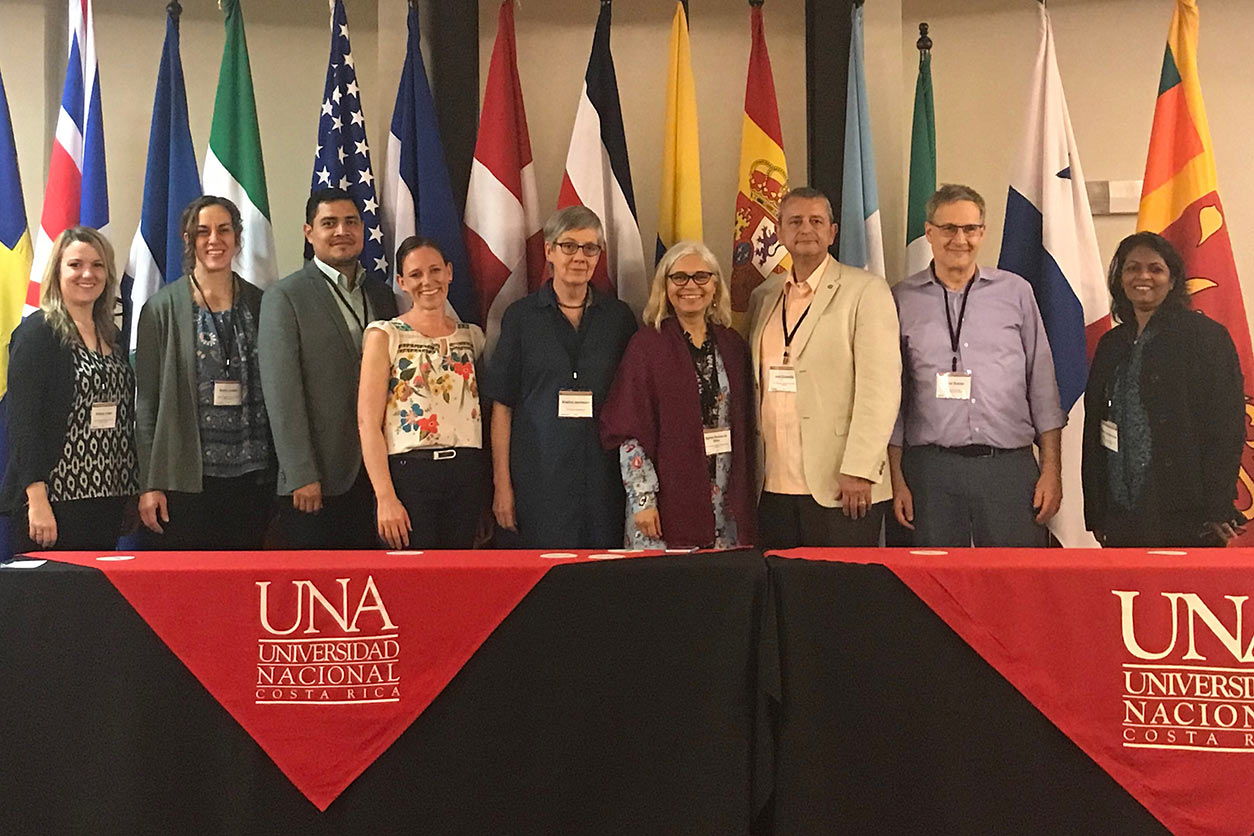 Workshop organizing committee: from left, Brittany Trottier and Joubert, from NIEHS; Marvin Gonzalez, M.D., Ph.D., from National Autonomous University of Nicaragua; Crowe; Kristina Jakobsson, Ph.D., from University of Gothenburg; Agnes Soares, M.D., and Jose Escamilla-Cejudo, Ph.D., from PAHO; Daniel Brooks, D.Sc., from Boston University; and Nalika Gunawardena, M.D., from WHO. Not pictured: Mendley and Paul Kimmel, M.D., from NIDDK. (Photo courtesy of Jennifer Crowe)
Workshop organizing committee: from left, Brittany Trottier and Joubert, from NIEHS; Marvin Gonzalez, M.D., Ph.D., from National Autonomous University of Nicaragua; Crowe; Kristina Jakobsson, Ph.D., from University of Gothenburg; Agnes Soares, M.D., and Jose Escamilla-Cejudo, Ph.D., from PAHO; Daniel Brooks, D.Sc., from Boston University; and Nalika Gunawardena, M.D., from WHO. Not pictured: Mendley and Paul Kimmel, M.D., from NIDDK. (Photo courtesy of Jennifer Crowe)Joubert, who served on the organizing committees for both the 2018 and 2019 workshops, said that the latest workshop had much broader international participation, including greater coverage across known hotspot regions such as Sri Lanka.
“Because the disease etiologies, methods of data collection, and agricultural conditions vary across regions, it was valuable to get people together to share what they are doing and observing, and discuss collaboration more broadly,” Joubert said.
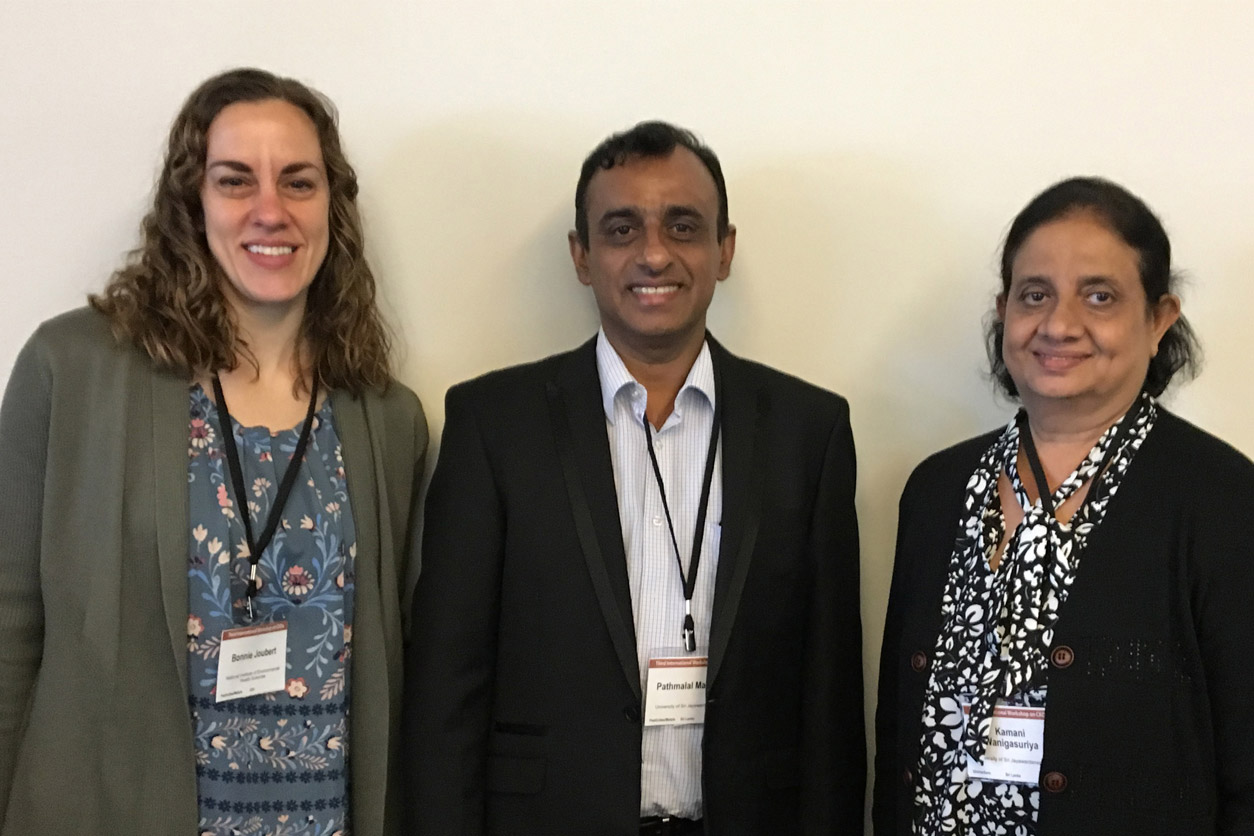 Joubert enjoyed speaking with NIEHS-sponsored travelers Pathmalal Manage, center, and Kamani Wanigasuriya, from University of Sri Jayawardenepura in Sri Lanka. (Photo courtesy of Jennifer Crowe)
Joubert enjoyed speaking with NIEHS-sponsored travelers Pathmalal Manage, center, and Kamani Wanigasuriya, from University of Sri Jayawardenepura in Sri Lanka. (Photo courtesy of Jennifer Crowe)Breadth and depth
Working groups and speakers shared updates on scientific advances, collaborations, and international standardization of research protocols. Participants recommended intervention and prevention strategies, cross-disciplinary education, and sharing workshop results.
Experts led in-depth working groups on eight topics.
- Analytical epidemiology.
- Biomarkers of abnormal kidney function.
- Clinical presentation and treatment (see sidebar).
- Heat load, dehydration, and workload.
- Assessing exposures to pesticides, other agrichemicals, and metals.
- Surveillance and screening.
- Molecular approaches in genetics, epigenetics, and infectious disease.
- Pathology.
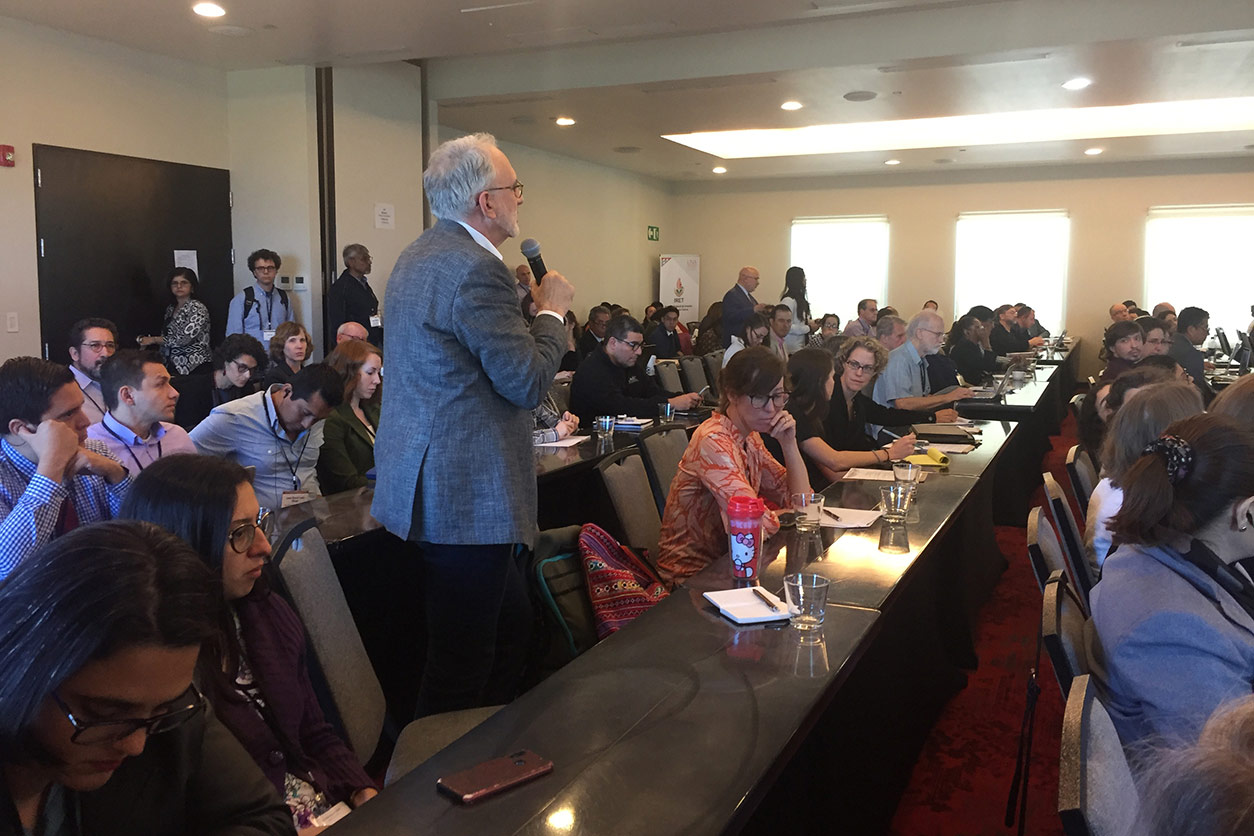 Participants, such as NIEHS grantee Lee Newman, M.D., from the University of Colorado, actively participated in question and answer sessions after presentations. Newman works on chronic kidney disease of unknown etiology in Nicaragua. (Photo courtesy of Jennifer Crowe)
Participants, such as NIEHS grantee Lee Newman, M.D., from the University of Colorado, actively participated in question and answer sessions after presentations. Newman works on chronic kidney disease of unknown etiology in Nicaragua. (Photo courtesy of Jennifer Crowe)National Toxicology Program highlights
Brian Berridge, D.V.M, Ph.D., NTP associate director, co-led the pathology working group, which included NTP scientists Susan Elmore, D.V.M., and Alison Harrill, Ph.D. Members worked with experts who evaluated kidney biopsies from patients across the affected geographic areas. They established standard approaches to biopsy characterization, identified key characteristics, and shared perspectives on possible causes.
Elmore described capabilities at NTP that may contribute to better connecting the global community of pathologists and evaluating environmental chemicals that cause kidney injury.
Ultimately, consistencies in biopsy features may help clarify what is causing this disease, how to detect it, and how it progresses. “Leveraging what we already know is critical to understanding what we don’t know and planning for efforts to fill in the gaps,” Berridge said.
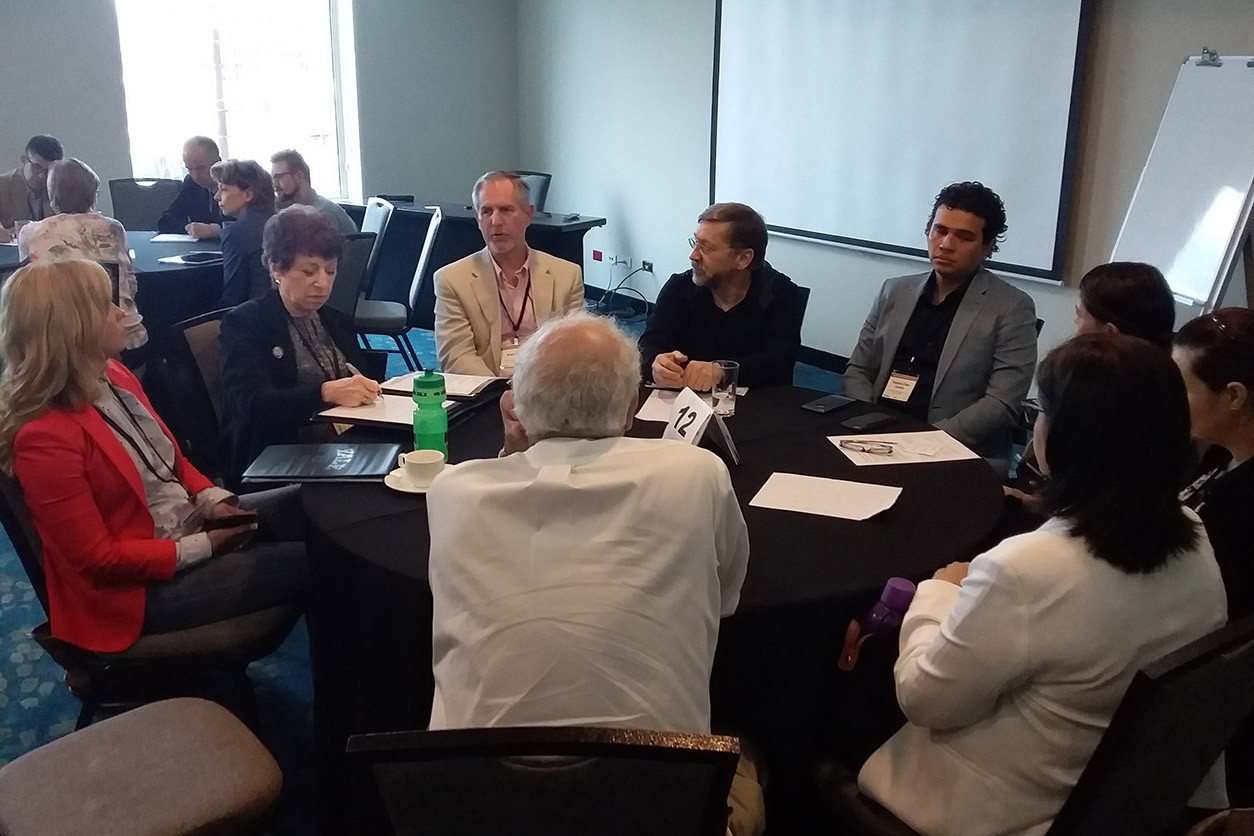 Berridge, third from left, and Birnbaum, to his right, joined round table discussions. Jakobsson moderated the group. (Photo courtesy of Jennifer Crowe)
Berridge, third from left, and Birnbaum, to his right, joined round table discussions. Jakobsson moderated the group. (Photo courtesy of Jennifer Crowe)Enthusiastic and international
“The comments I have heard have been very enthusiastic,” said Jennifer Crowe, Ph.D., from the National University of Costa Rica. “People from different backgrounds and disciplines felt comfortable having in-depth and often difficult discussions on a topic which has caused divisions in the past.”
Crowe is a member of CENCAM and was part of the workshop organizing committee. “We demonstrated that institutions can collaborate effectively to make that happen using diverse resources and abilities,” she said.
(Janelle Weaver, Ph.D., is a contract writer for the NIEHS Office of Communications and Public Liaison.)
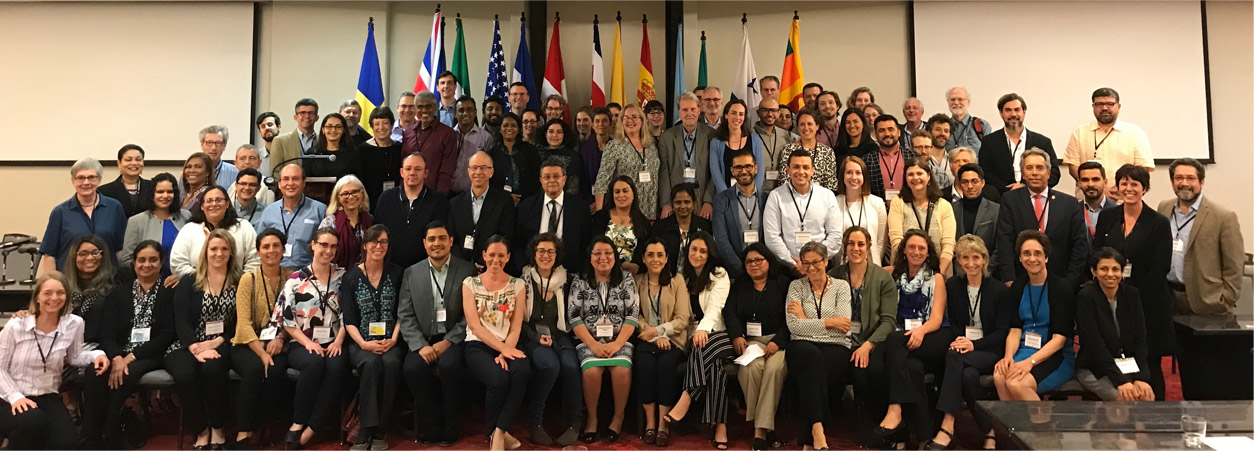
Participants hope the many connections formed at the workshop will lead to research that sheds light on the troublesome trend of the disease.





